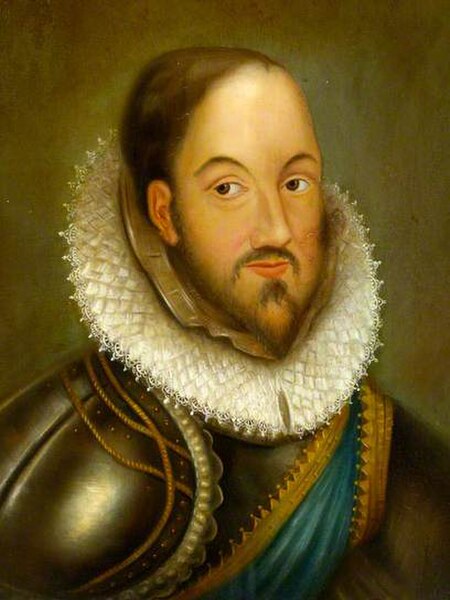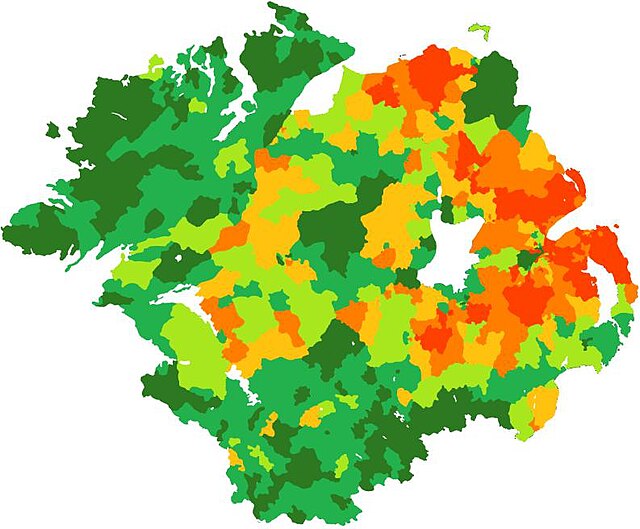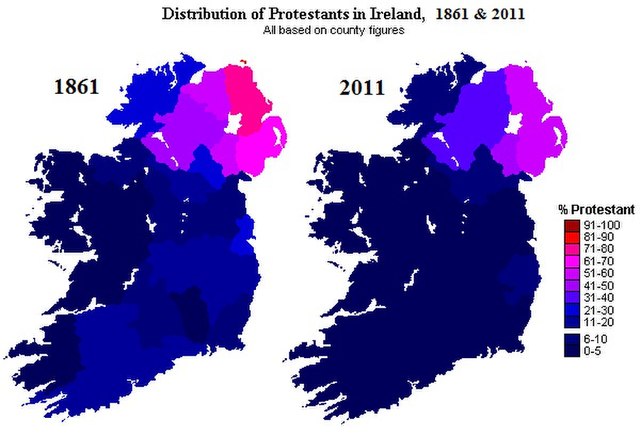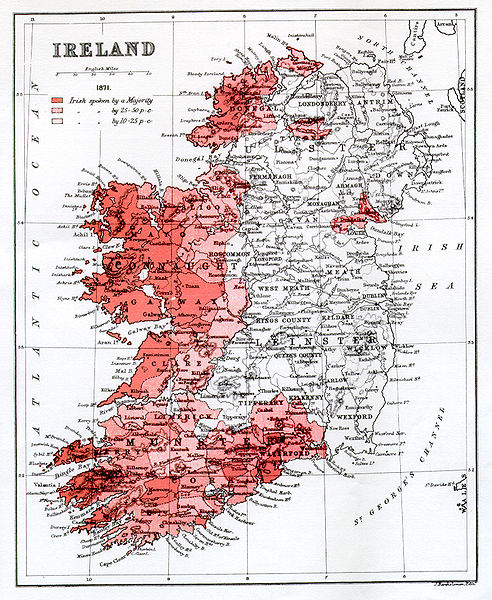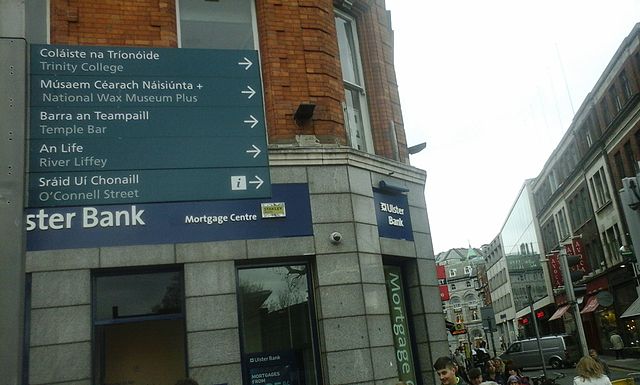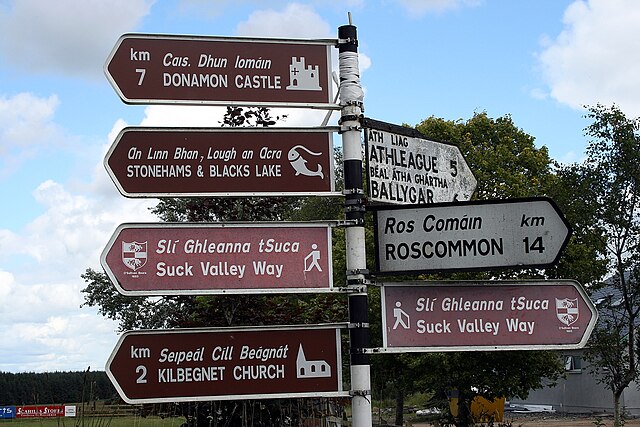The Plantation of Ulster was the organised colonisation (plantation) of Ulster – a province of Ireland – by people from Great Britain during the reign of King James VI and I. Most of the settlers came from southern Scotland and northern England; their culture differed from that of the native Irish. Small privately funded plantations by wealthy landowners began in 1606, while the official plantation began in 1609. Most of the land had been confiscated from the native Gaelic chiefs, several of whom had fled Ireland for mainland Europe in 1607 following the Nine Years' War against English rule. The official plantation comprised an estimated half a million acres (2,000 km2) of arable land in counties Armagh, Cavan, Fermanagh, Tyrone, Donegal, and Londonderry. Land in counties Antrim, Down, and Monaghan was privately colonised with the king's support.
Arthur Chichester, Lord Deputy of Ireland, one of the main planners of the Plantation
A plan of the new city of Londonderry, c.1622
Percentage of Catholics in each electoral division in Ulster. Based on census figures from 2001 (UK) and 2006 (ROI). 0–10% dark orange, 10–30% mid orange, 30–50% light orange, 50–70% light green, 70–90% mid green, 90–100% dark green
Ireland Protestants 1861–2011 (The (dark) blue areas include other non-Catholics and non-religious).
Irish, also known as Irish Gaelic or simply Gaelic, is a Goidelic language of the Insular Celtic branch of the Celtic language group, which is a part of the Indo-European language family. Irish is indigenous to the island of Ireland and was the population's first language until the 19th century, when English gradually became dominant, particularly in the last decades of the century.
Today, Irish is still commonly spoken as a first language in areas of Ireland collectively known as the Gaeltacht, in which only 2% of Ireland's population lived in 2022.
The distribution of the Irish language in 1871
Bilingual sign in Grafton Street, Dublin
Bilingual road signs in Creggs, County Galway
Dublin airport sign in both English and Irish languages

